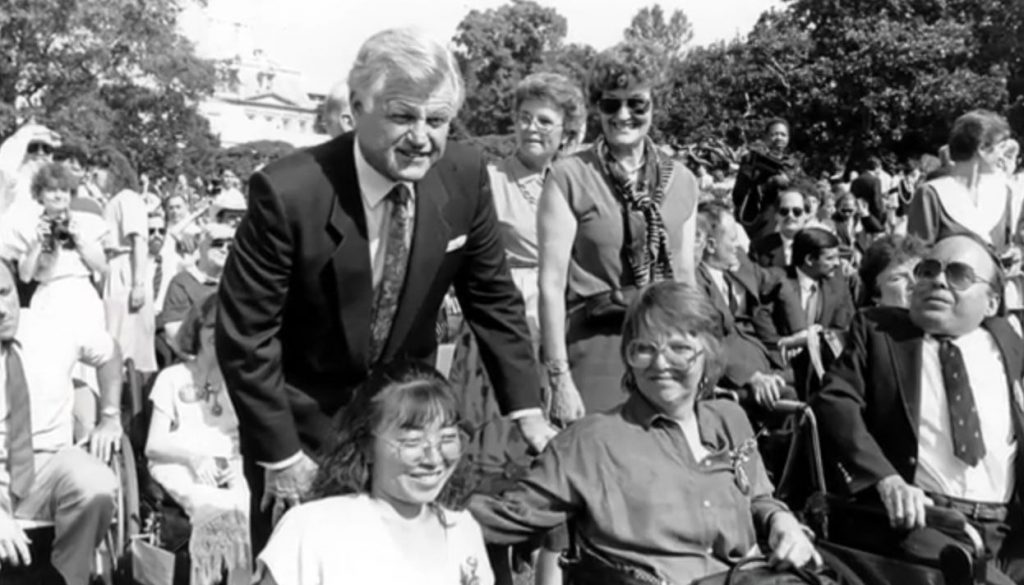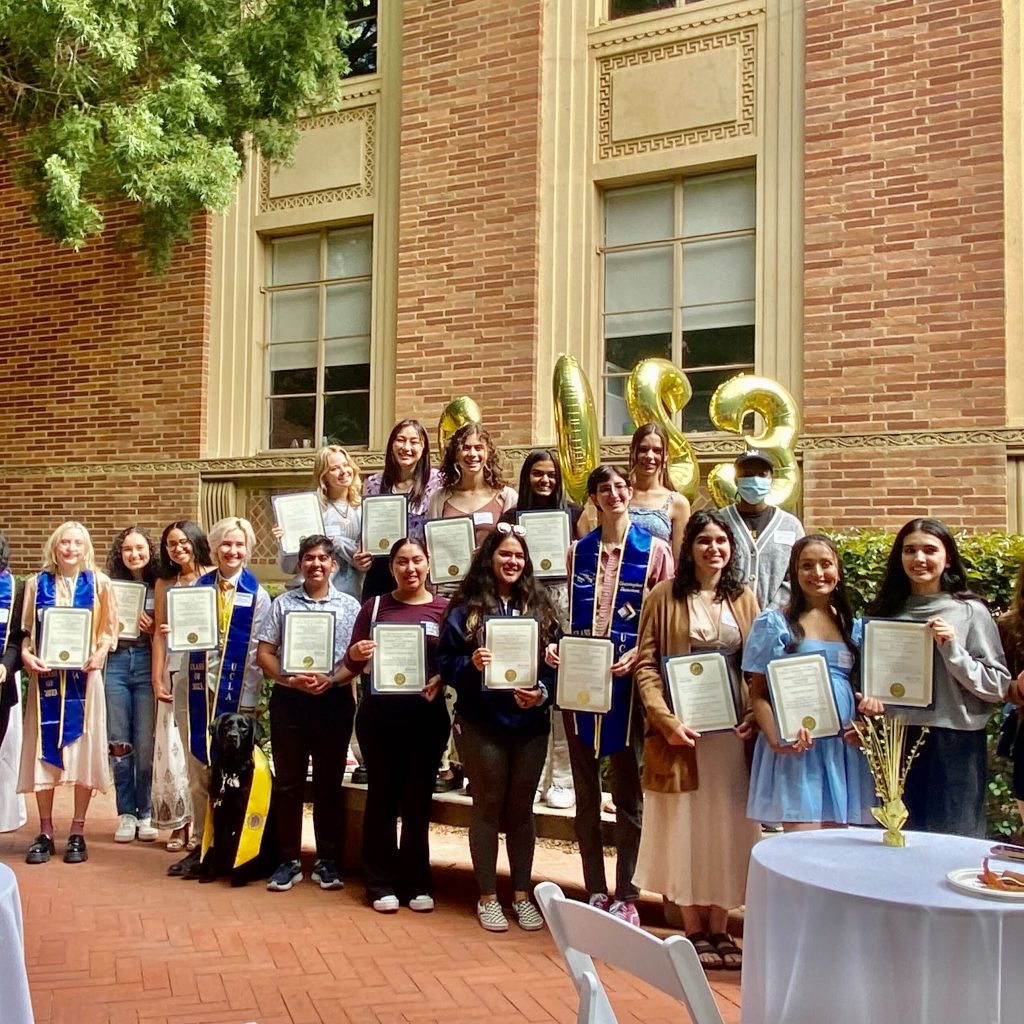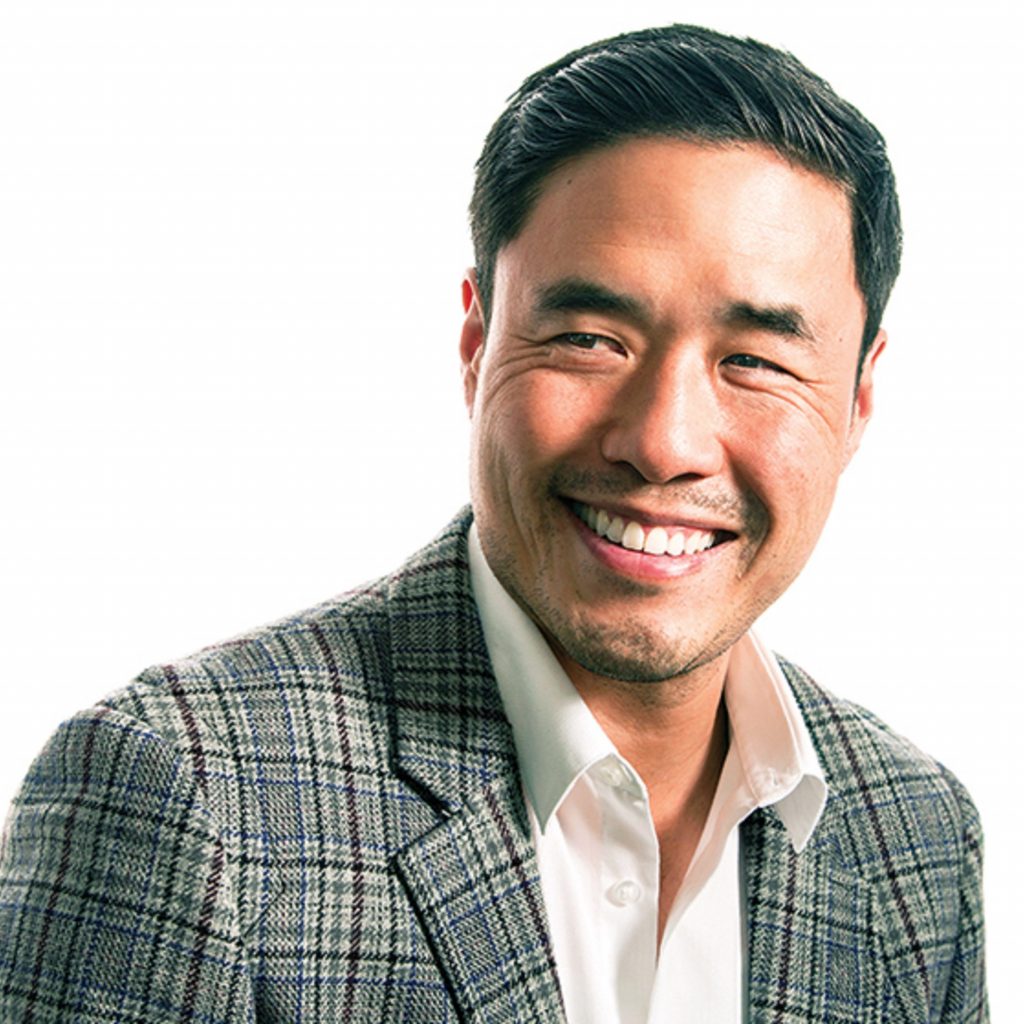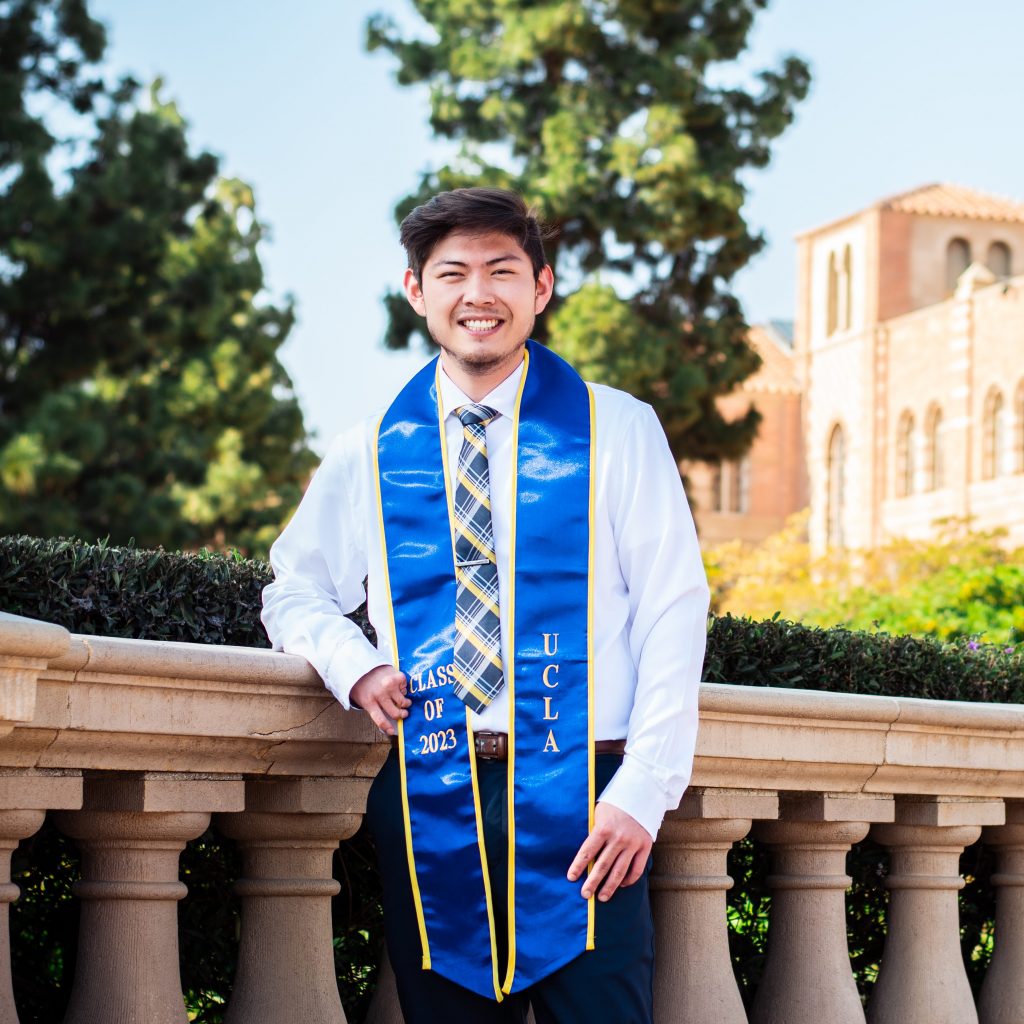On this 32nd anniversary of the Americans with Disabilities Act (ADA), we proudly recognize Douglas Martin as a tireless and inspiring civil rights activist and Bruin whose contributions to civil rights protections cannot be understated. Martin’s contributions to the ADA and making UCLA’s campus accessible are some of his accomplishments in a lifetime of advocacy.
Martin’s personal experience with mobility access led him to his studies in Urban Studies and Planning. Martin was diagnosed with polio at the age of 5 and was a wheelchair user. He attended UCLA, a more accessible campus, after being rejected from the University of Nebraska for failing the physical exam after officials saw his wheelchair despite having earned a major scholarship. According to the Los Angeles Times, Martin vowed “that [he] would pursue [his] education and use it to make sure this would not happen to anyone else.” His experience at UCLA was significant and spanned his undergraduate and doctoral career. Martin later became the first disabled person to be named Chancellor’s Fellow in 1971. He then completed his doctorate degree in 1975.
During his undergraduate career, Martin’s civil rights awareness developed early on. He made the connections between disability rights and other civil rights movements – the black civil rights movement, the antiwar movement, the consumer movement, and the women’s movement – and drew inspiration from those movements to use the political process to fight for disability rights as well.
At UCLA he founded the Union of Students with Disabilities (USD) which attracted a unique combination of disabled students who united around the need to reform the world. He would later recall the combination of the USD as one of some significant convergences of seemingly disparate groups from the disability community, the signing of the ADA as the largest.
Martin earned the prestigious Chancellor’s Fellowship based on his excellent grades, breadth of study, and work that has already contributed to original research, and earned stipends covering two years of teaching apprenticeship and research. His dissertation was in computer applications to urban planning, using data filters on visualize data such as population density on maps. This was called matrix filtering for planning purposes.
In the time after UCLA, Martin worked on the establishment of the Westside Center for Independent Living in Los Angeles, lobbied for Section 504 regulations of the Rehabilitation Act of 1973, advocated to reform work disincentive regulations which lead the amendment Section 1619 to SSI, and worked as the 504 coordinator for the City of Culver City for several years.
Martin would later return to his alma mater as the special assistant to Chancellor Charles Young. The ADA, the monumental piece of legislation that provides civil rights protections to individuals with disabilities in the areas of employment, state and local government services, public accommodations, transportation, and telecommunications, was signed after significant lobbying between thousands of activists and over the course of decades and soon after he took the job as the compliance officer at UCLA, which he held for thirteen years. He transformed today’s UCLA campus to be more accessible by supervising the conversion of the campus buildings to comply with the new ADA policies. At the time he took the job in 1989, 75% of the campus buildings were inaccessible to people with disabilities. Martin worked to convert the buildings to include access ramps, handrails, curb ramps, Braille signs, and more. As a result of his work on campus, the enrollment of students with disabilities increased from 237 in 1989 to 1,082 by 1996. Martin co-founded the Chancellor’s Advisory Committee on Disability in 1983 which was the Committee later pivotal in approving the Disability Studies Minor when it was created in 2007. At the DS Minor reception, Douglas Martin and other prominent actors like Jayne Spencer and Jessie Alpaugh were recognized as enormous contributors to the emergence of the minor. Martin would have been proud to see Disability Studies scholarship formalized at UCLA as one example of the university’s commitment to disability access, awareness, and justice.
Martin passed away at age 55 when his respirator malfunctioned in his sleep.
His impact on UCLA’s accessibility policies is important, yet there is more work to be done. UCLA, its community, and student activists strive to continually improve access and inclusion for disabled students. The Disabled Student Union’s history-making 16-day sit-in this year is a testament to the continued need and fight for disability justice. Advocating for the needs of immunocompromised students and students who live with disabled and immunocompromised family members, the demands from the Disabled Student Union included: the permanent option to attend in-person or live-streamed lectures; elimination of punitive attendance requirements; mandated lecture recordings, and more, to reduce the risk of transmitting COVID to students and their family members.
It is thanks to thousands of disability activists’ collective and continuous work that the ADA and other policy changes were passed. Douglas Martin’s example is that of Bruins creating community and change in their society. Remembering Martin is remembering his example of Bruin excellence, initiative, impact, and social justice.
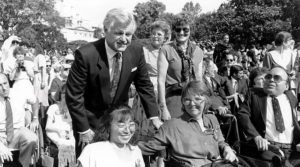
Additional Resources
UCLA’s Center for Accessible Education offers resources and coordinates accommodations for students with disabilities. The Center also facilitates disability advocacy and education across campus. Likewise, the Tarjan Center is one of 67 University Centers for Excellence in Developmental Disabilities Education, Research and Service (UCEDD) and is dedicated to empowering people with disabilities through leadership training, community education, and research.
To learn more about how UCLA and the Disability Studies minor program and its students continue to transform the university, please visit the DS Labs website and consider joining the network.
View the original articles on the Los Angeles Times, UCLA Newsroom, and the Daily Bruin.
Suggested reading:
Bayles-Yaeger, Danni. On A Roll: A Participant’s View of Disability Rights at UCLA, transcript of an oral history conducted 2000 by Danni Bayles-Yaeger, Oral History Program, University of California, Los Angeles, 2000, 295pp.
References
Bonney, Sharon., Shaping National Disability Policy: Transportation Access and Social Security Reforms, transcript of an oral history conducted 2002 by Sharon Bonney, Disability Rights and Independent Living Movement Oral History Project, Regional Oral History Office, The Bancroft Library, University of California, Berkeley, 2004, 178pp.
Disabled Student Union UCLA and Mother Organizations of UCLA. “Longest Sit-In in UCLA History Ends with Massive Victory for Students.” KnockLA, 17 Feb. 2022, https://knock-la.com/ucla-disabled-students-union-sit-in/. Accessed July 26, 2022.
Lee, Cynthia. “Q&A: Protecting the Rights of People with Disabilities.” UCLA Newsroom, 17 July 2015, https://newsroom.ucla.edu/stories/q-a-protecting-the-rights-of-people-with-disabilities.
Nelson, Shane. “Disabled rights activist dies, but legacy remains.” Daily Bruin, 8 Jan. 2003, https://dailybruin.com/2003/01/08/disabled-rights-activist-dies. Accessed 26 July 2022.
Nicholson, Mari. “Douglas Martin Remembered for Commitment to Disability Rights.” Daily Bruin, 8 May 2003, https://dailybruin.com/2003/05/08/douglas-martin-remembered-for. Accessed 26 July 2022.
Oliver, Myrna. “Douglas Martin, 55; Fought Prejudice Against Disabled.” Los Angeles Times, 7 Jan. 2003, https://www.latimes.com/archives/la-xpm-2003-jan-07-me-martin7-story.html. Accessed 26 July 2002.
